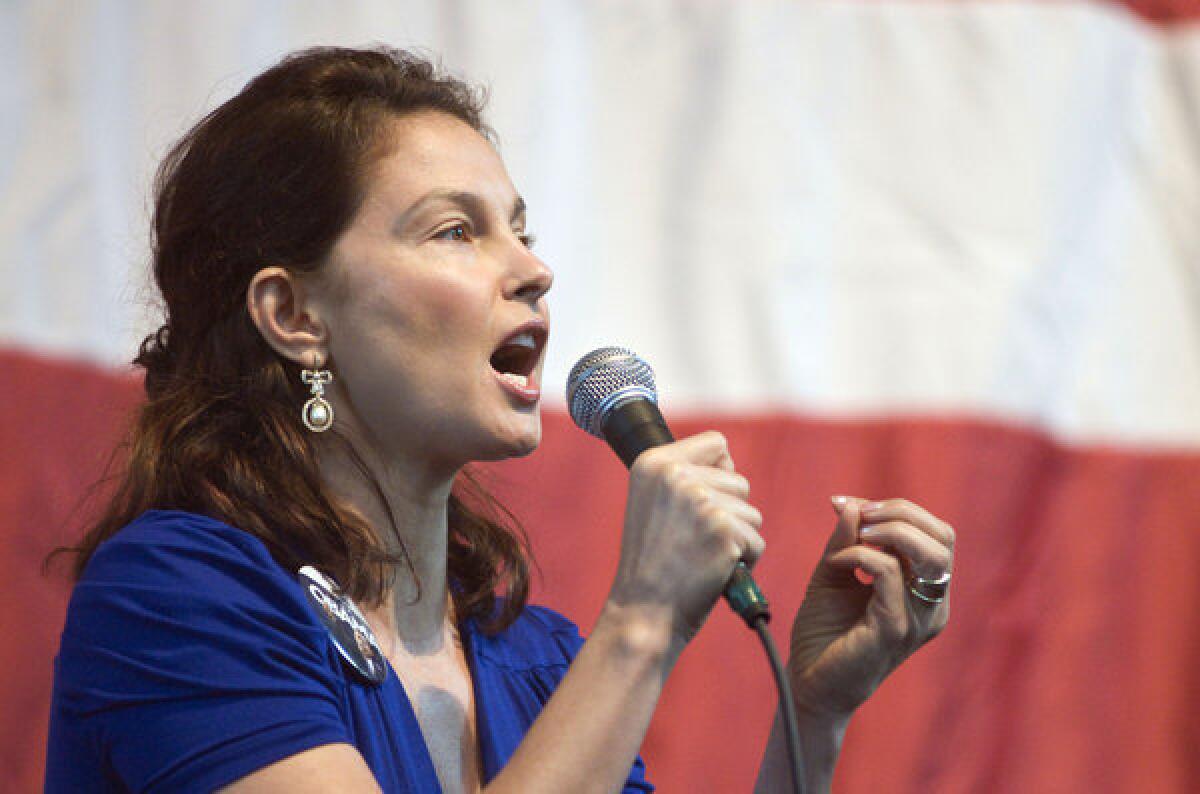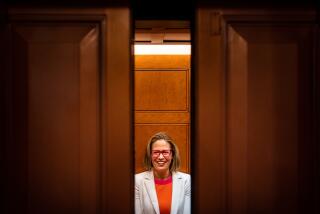Ashley Judd’s next role: Not running for Senate

Sorry, political junkies. Ashley Judd will not be trying to make CSPAN-2 more watchable anytime soon.
Judd took to Twitter on Wednesday to announce that she wouldn’t be running for the U.S. Senate in Kentucky next year, meaning that she’ll come no closer to official Washington than her current role as the first lady in “Olympus Has Fallen.” Not yet, at least.
The actress and University of Kentucky graduate had flirted with running against Senate Minority Leader Mitch McConnell, but ultimately decided not to join the race. Her tweets cited the boilerplate need to focus her time and energy on her family, and maybe that’s the whole story. More likely, Judd used her Phi Beta Kappa brain to calculate that the chances of unseating McConnell were too slim to justify all the fund raising she’d have to do and the criticism she’d have to endure.
I don’t have anything against Judd personally, and if I were a “Star Trek: The Next Generation” fan, maybe I’d actually be a fan. Nevertheless, her near-candidacy reflects much of what’s wrong with politics today.
Judd’s smart, articulate and something of a policy wonk on several issues, including human trafficking and central African poverty. But what made her instantly credible in the minds of some observers was her celebrity, which translates into the ability to raise huge gobs of money. And that, sadly, is much of what it takes to run for a major political office in this country. It’s not sufficient, clearly -- witness Mitt Romney’s record in Senate and presidential races -- but it is certainly necessary.
It’s also worth noting that Judd’s lack of experience inside government didn’t seem to be viewed by anyone as a handicap. It was enough that she was smart, well known and well liked, at least on one side of the political fence. Politico and other inside-the-Beltway publications saw Judd as being vulnerable because she’d espoused some views that supposedly were too liberal for Kentucky -- such as her stance against mining on the mountain tops -- and because she’d moved her home to (gasp!) Tennessee. The fact that she’d never wrestled with constituents’ problems or their conflicting demands wasn’t an issue.
Maybe that’s because we’ve demonized the idea of “career politicians” -- people who devote their life to public service, working their way gradually up the political ladder. We tend to refer to first-time candidates as “outsiders,” not “novices” or “amateurs.” And we tend to view people who are new to politics as less self-interested than those who’ve spent years steeped in the intricacies of governing.
That’s not to say that it takes an old hand to be a capable senator. Far from it. Senators have a team of aides beneath them to handle the detail work, such as finding the right bureaucrat to solve a Social Security problem or the right stakeholders to canvass about a bill. It’s just fascinating to me how little we seem to value service in government as a prerequisite for serving in government.
Granted, government insiders tend to fare a lot better at the polls than outsiders do. For proof, look no further than the results of the L.A. city elections in March. But that’s usually true because insiders -- incumbents, top staffers and officeholders trying to jump into a new seat -- have the connections needed to raise money and gather endorsements, not because they understand the budget process.
ALSO:
For gay rights, a historic opportunity
Goldberg: The wisdom of Dan Quayle
Follow Jon Healey on Twitter @jcahealey
More to Read
A cure for the common opinion
Get thought-provoking perspectives with our weekly newsletter.
You may occasionally receive promotional content from the Los Angeles Times.











